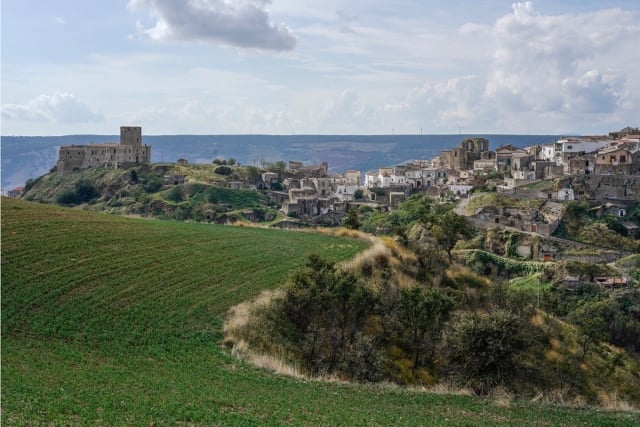As young Italians flock to cities or move abroad in search of jobs and a better life, thousands of the country's small towns and villages are now at risk of being completely abandoned.
More than half of Italy’s small towns are destined to be deserted in the next few decades as their populations dwindle further, according Italy's environmental agency Legambiente.
The 2,430 towns at risk are home to some three million Italians, meaning the issue of ghost towns is a pretty big problem.
Not to mention the fact that seeing these idyllic villages falling into ruin is just, well, really sad.
Successive Italian governments have seemed at a loss. But now Airbnb seems to think it has the answer, starting with the revitalisation of one small Italian village.
The accommodation rental website announced this week that it is “sponsoring a unique opportunity for four people to move to the small village of Grottole for three months and experience authentic rural life in Italy.”
The remote village is located in one of the poorest and most rural regions of Italy. Which is great if you want to get away from it all on holiday – but obviously, not so great if you're a young Italian looking for a job.

Grottole's location. Screenshot: Google Maps
“Selected candidates will become temporary citizens of the village and will volunteer for a local non-profit organisation called “Wonder Grottole” whose aim is to revitalise the town’s historical centre,” it said in its call for applications.
Candidates must be over 18, be available to move to Grottole for 3 months, from June to August 2019, and have a good knowledge of English.
The village’s four newest residents will be announced on March 29, 2019.It says the small village, which is near Matera, the 2019 Capital of Culture, has only 300 inhabitants and more than 600 houses standing empty.
READ ALSO: Weekend Wanderlust: Matera, Italy's city of caves, contrasts, and culture
Airbnb paints an idyllic picture of life in the village, promising days beginning with cappuccino and a language lesson before meeting a cast of bee-keeping, olive-oil producing residents.
But while it sounds like a holiday, Airbnb expects the four new “residents” to complete training to become Airbnb Experience Hosts who'll go on to work for Wonder Grottole.
The chosen four will be expected to completely immerse themselves in the local culture, studying Italian, working in the community garden, and learning to cook traditional recipes, before then passing on their newfound knowledge to the influx of visitors Airbnb Italy is hoping will then descend on the village.
“We have to create a system, or the many Grottoles across Italy will continue to remain hidden gems,” said Matteo Frigerio, Country Manager of Airbnb Italy.
This system, it’s hoped, will breathe new life into the village which is currently heading for extinction.
“In ten years we’d like to see the village full of people of different cultures perfectly integrated with the local community” said Silvio Donadio, founder of Wonder Grottole.
While it sounds like an exciting opportunity for four travellers keen to spend a summer in Italy, whether or not Airbnb and tourism can really solve the country’s depopulation problem remains to be seen.
Meanwhile, in another, separate effort to combat depopulation, the small town of Sambuca in Sicily is offering houses for one Euro – sort of.
The new owners will also need to commit to a renovation programme and pay a refundable 5,000 Euro deposit.
READ ALSO:



 Please whitelist us to continue reading.
Please whitelist us to continue reading.